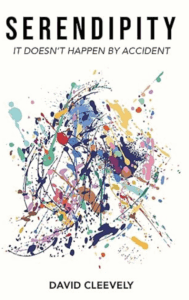Letting sleeping dog lie

Arles, 2012.
Quote of the Day
”If you don’t have anything nice to say, come sit by me.”
- Dorothy Parker
Musical alternative to the morning’s radio news
Fleetwood Mac | Never Going Back
Long Read of the Day
Encounters with Reality
This is a thoughtful review essay by Regina Munch on Christine Rosen’s book, The Extinction of Experience: : Reclaiming Our Humanity in a Digital World
When I was fourteen, my family went on a Caribbean cruise. I have always been allergic to the idea of going somewhere for the explicit purpose of “having a good time.” But that’s exactly what a cruise—at least this particular kind of cruise—is: a never-ending parade of convenient entertainment and diversion. Gorge yourself at breakfast; use the coupon in your welcome bag for a mid-morning massage; have lunch brought to your table at the pool; shop luxury brands on the promenade in the afternoon; go to a fancy dinner and a comedy show and max out that bar access card. On the days you actually alight on land, you’re met with a theme park version of Cozumel or San Juan, rigorously patrolled tourist markets selling souvenirs or even the cruise line’s private island devoted entirely to passengers’ seamless pleasure. (Royal Caribbean’s is called Perfect Day at CocoCay. To me, that feels like a threat—have a perfect day, or else.)
It’s all too easy, I remember thinking as I downed yet one more Shirley Temple. I couldn’t define it at the time, but I had the persistent feeling that I was being lied to. Surely such a quantity and variety of food doesn’t materialize from nothing; it’s prepared and served by people whose labor is carefully hidden from me, presumably because it would bum me out if it weren’t. One day, we disembarked in Mexico and saw police officers with machine guns guarding the limits of the tourist area. Something was being kept out—or in.
I was brought back to that week as I read Christine Rosen’s The Extinction of Experience: Being Human in a Disembodied World, which evaluates the effects that apps, algorithms, social media, devices and other technologies have had on the way we encounter the world and relate to each other. Rosen claims that we have replaced true experiences—real encounters with the world—with simulations and cheap imitations (which I’ll refer to here as “experiences” for ease)…
I was drawn to this because of an aphorism that’s been running round my head for decades — “Technology is the art of so arranging the world that we don’t have to experience it.” For years I wrongly attributed it to the philosopher Martin Heidegger until Seb Schmoller (Whom God Preserve) pointed out that it came from Max Frisch in his book Homo Faber.
Munch doesn’t entirely buy Rosen’s argument, which makes the essay more interesting than an ordinary book review.
Hope you enjoy it.
So many books, so little time

David Cleevely is an entrepreneur whom I know and admire but until now I never thought of him as an author. And then, just when we were away in France, he springs this on us: a really interesting book about the accidental encounters out of which great ideas and innovations come. By definition these accidents cannot be planned or anticipated, but that doesn’t mean that we simply have to sit around and hope that they will happen. David’s big idea — that it is possible to design spaces where such encounters can happen, and environments which increase the chances that, when they do, they lead to meaningful outcomes.
I’ve watched him in action for many years, during which he has done more than anyone else I know to create those kinds of environments in and around Cambridge. (He’s the founder of, among other things, the Cambridge Network and the Centre for Science and Policy in the University.) His book is essentially a distillation of what he’s learned over those decades.
Reading it is a bit of a revelation. I’ve always known that he can “talk the hind legs off a donkey” (as we say in Ireland); but nobody told me that he also writes well.
My commonplace booklet
“We say that we ‘conduct’ a conversation, but the more genuine a conversation is, the less its conduct lies within the will of either partner. Thus a genuine conversation is never the one that we wanted to conduct. Rather, it is generally more correct to say that we fall into conversation, or even that we become involved in it. The way one word follows another, with the conversation taking its own twists and reaching its own conclusion, may well be conducted in some way, but the partners conversing are far less the leaders of it than the led. No one knows in advance what will “come out” of a conversation… it allows something to ‘emerge’ which henceforth exists.”
Hans-Georg Gadamer, Truth and Method, trans. Joel Weinsheimer and Donald Marshall.
Which is why face-to-face conversations are so important.
This Blog is also available as an email three days a week. If you think that might suit you better, why not subscribe? One email on Mondays, Wednesdays and Fridays delivered to your inbox at 5am UK time. It’s free, and you can always unsubscribe if you conclude your inbox is full enough already!
